Record Pub Lockdown Leaves Rural Ireland High And Dry
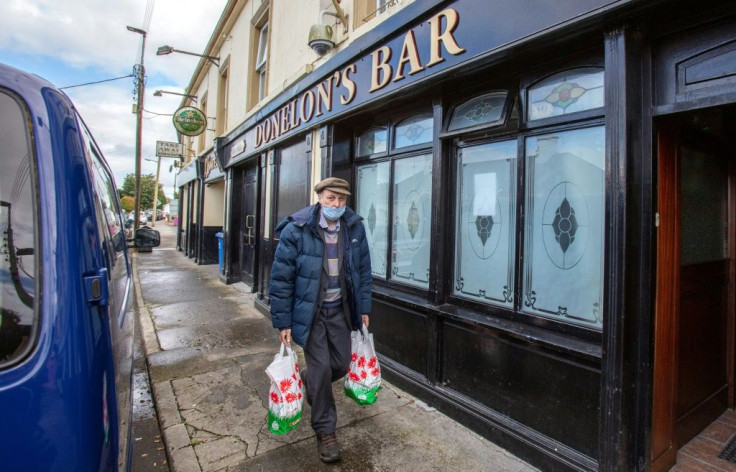
In the pubs of Dunmore in the west of Ireland, the Guinness glasses gather dust and the kegs are stacked dormant. Among the locals, a sober mood has taken hold.
The lengthy coronavirus shutdown of pubs in Ireland has hit the 3,000 or so people in the village and surrounding area particularly hard.
Five out of its six village pubs have been shut since March, depriving the community of institutions which act as pillars of rural life.
Publican Joe Sheridan unbolts the door of Walsh's Bar in the County Galway village.
"They drink their pints along counters like that with their peers to discuss politics, to discuss the news of the day, to understand what's going on in their own life," he told AFP.
"I have people that would confide in me here in the bar that may not necessarily say to their GP (doctor) what's going on with them."
With bars shut, "you can see the people carrying the woes of life on their faces", said Sheridan, a seventh-generation publican.
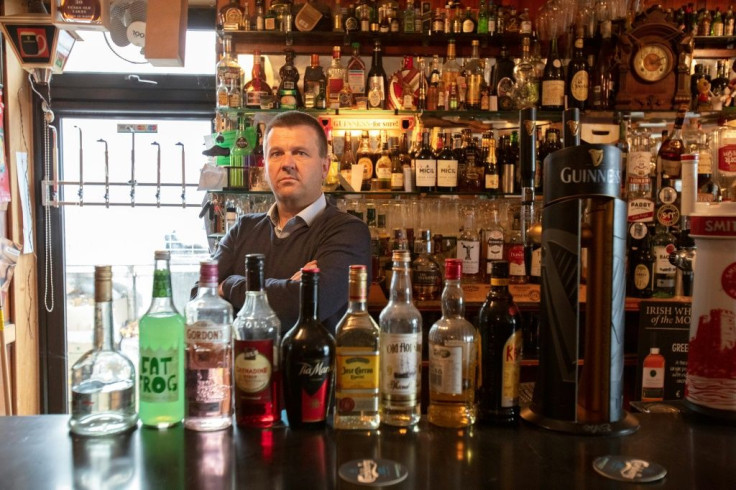
Inside his wood-panelled pub, he finds a pile of unopened post and the musty smell of inactivity.
Walls are jammed with group photos, sports memorabilia and dusty bottles.
It is testament to the pub's fluid role as community hall, museum and an understated sort of group catharsis in the village.
"The lights are going out in rural Ireland," he said.
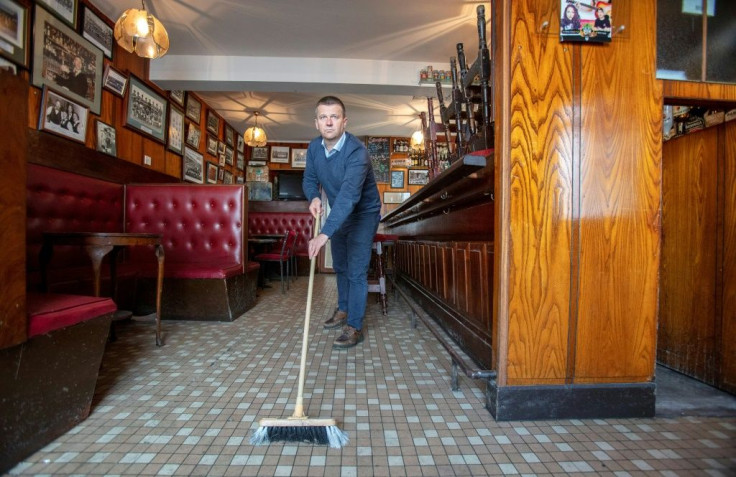
Irish pubs shut on March 16, as the nation braced for the coronavirus, which has so far claimed 1,777 lives.
After a 15-week hibernation, those serving food were permitted to reopen.
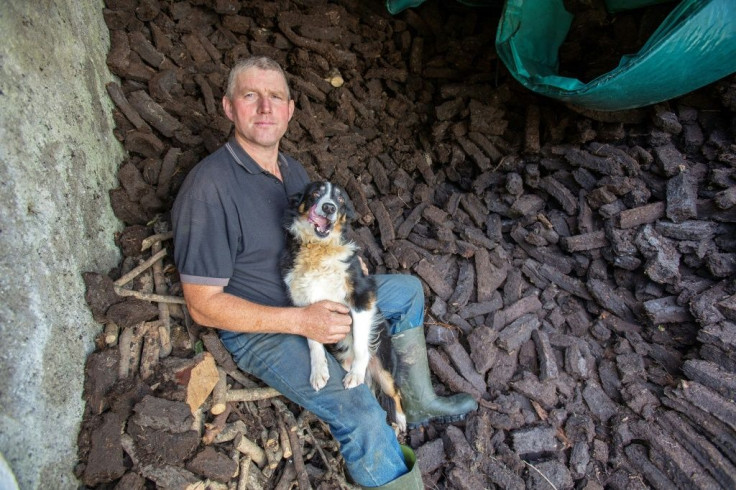
But so-called "wet pubs" serving drink only remained shut, with the government repeatedly pushing back reopening.
Restrictions are due to expire on September 13 in what the Drinks Industry Group of Ireland has called the "longest lockdown in the EU".
Industry bodies estimate that around half of the Republic's 7,000 pubs are still shuttered.
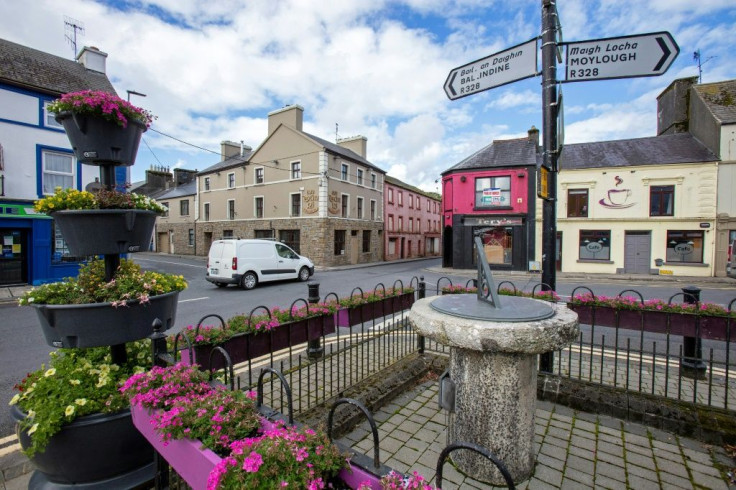
"The vast majority of these pubs are small rural outlets run by families who are on first-name terms with their customers," said Vintners Federation of Ireland chief Padraig Cribben in July.
In rural Ireland, pubs have a particular character. They are modestly sized, humbly decorated and staffed by friends and family.
Many are not equipped for restaurant food service.
One Dunmore pub has reopened under government guidelines by pairing with a local takeaway to provide sit-in meals.
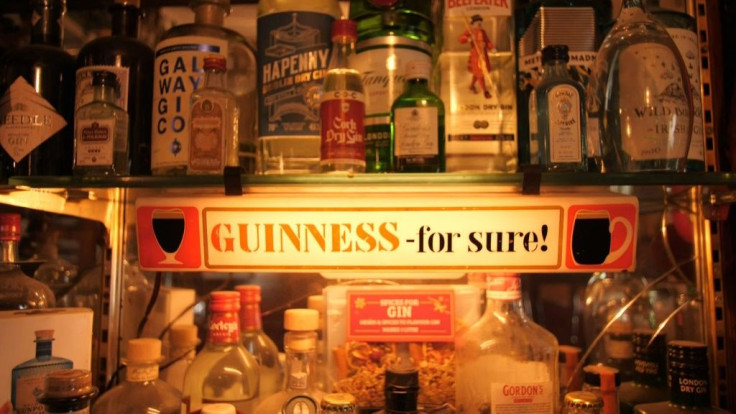
With population flight, a declining agriculture industry and scant alternative social outlets, pubs in rural Ireland play a role that is hard to overstate.
Many people in the countryside still eat their main daily meal at lunchtime, reserving a stretch of uninterrupted evening for the pub.
Historically, pubs have acted as hardware stores, grocery shops and drapers, filling the void of state infrastructure with small business and mutual aid.
In Dunmore, three pubs still act as undertakers when regulars die, organising the funeral and for fellow drinkers to dig the grave.
"It's the thing of a 'meitheal'," explained Sheridan. "It's an Irish word for a group coming together to work voluntarily."
But the lockdown is "messing with traditions that have been built up over generations," he said.
Dunmore village -- nested in improbably green fields laced by grey stone walls -- is home to just 600.
An outsider may think its six pubs existed in fierce competition.
But Sheridan views them each as nodes in an ecosystem of support with subtly different vibes and navigated by locals according to need and preference.
Alcohol seems almost besides the point.
"It's nearly like the jungle grapevine," said the 49-year-old, who also serves as a councillor for the centre-right Fianna Fail party currently in government.
"The public house acts as a conduit for communities."
While rural decline is nothing new, coronavirus closures are "throwing petrol on the fire", he said.
Homes scattered outside Dunmore are now where Sheridan's customers -- many of them older, single men -- spend time siloed alone.
"Here you have nothing to look at but the lightbulb, like a moth," said Brendan Jordan, 51.
His three or four weekly visits to the pub gave respite from the care he gives his disabled sister.
"They are segregating us out here in the countryside and nobody cares," said bachelor farmer John Hussey, 52.
"They have everything killed in the rural areas."
© Copyright AFP {{Year}}. All rights reserved.





















